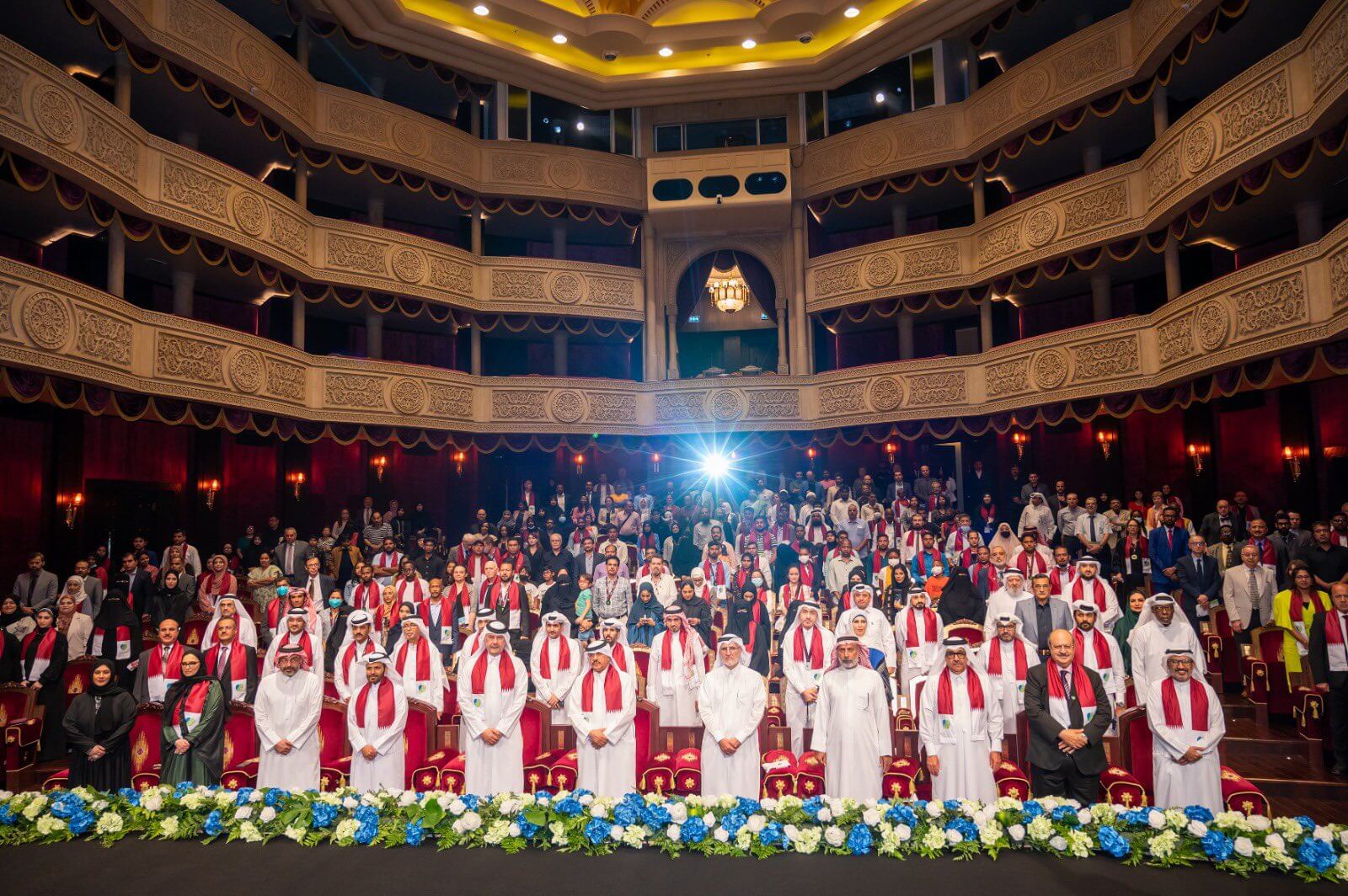Five hundred thousand people in Qatar have registered to donate their organs.
Qatar’s organ transplant programme made history this year by performing the biggest number of kidney transplant surgeries since it launched, Hamad Medical Corporation (HMC) has revealed.
The programme witnessed the success of its three first lung transplant operations since launching this year.
In a special ceremony held in Doha, the Qatar Organ Donation Centre (Hiba) and HMC honored 35 families of deceased donors as well as 71 living kidney donors, eight living liver donors and ten stem cell donors.
A total of 124 living donors and the families of deceased donors also received the Medal of Altruism at the event, which marked the 10th anniversary of the Hiba Organ Donation Centre in Qatar.
Hiba was launched in August 2012 to lead, manage, document and supervise all organ donation activities. The centre is determined to achieve self-sufficiency through public education and the promotion of donations. It serves as the focal point for the national donor registry, transplant registry and research database.
During the event, health officials also recognised 23 kidney transplant recipients from Qatar for opting to receive their surgery in their home country rather than traveling abroad.
“The people of Qatar, both citizens and residents, continue to show their support for Qatar’s unique, world-class, and equitable organ donation and transplant programmes and we thank them for their unwavering support,” said Dr Abdallah Al Ansari, HMC’s Chief Medical Officer.
“I am proud of this tremendous accomplishment, and I would like to thank all of my colleagues and cadres in all transplant and organ donation programmes for their tireless efforts and dedication to their ongoing work.”
Such hopeful numbers can be attributed to the rising number of organ donors in the Gulf nation in the last decade.
10 years ago, 2,000 people were registered as organ donors in Qatar. Today, 500,000 residents and nationals in the country have signed the post-mortem organ donation form, which includes more than 131 nationalities.
The number, according to Dr. Riyad Fadel, Director of the Qatar Organ Donation Center (Hiba) and member of the World Health Organisation’s Committee of Experts on Organ Donation and Transplantation, makes up 25% of the total adult population in the country.
“There are more than 131 nationalities represented in the registry that reflected positively on the rate of organ donation among all nationalities, which is a unique achievement. Respect for human rights, autonomy and equity made Qatar a model of ethical and best clinical practice that is much-admired by the international transplant community,” Dr. Riadh said.
Organ donors are individuals who voluntarily give an organ to help someone that is in crucial need of a replacement, whether it is a relative, friend or stranger. Some organs such as kidneys or specific liver parts can be donated while a person is still alive. However, others can only be given away by donors once they have passed away.
Deceased donors can donate six types of organs: kidneys, pancreas, liver, lungs, heart and intestines. They can also donate bones, skin, heart valves, veins, and corneas. If an individual donates all their organs, they can save up to eight lives.
All of the transplant procedures by HMC are conducted under the Doha Donation Accord, which has received endorsement from the International Transplantation Society and the Istanbul Declaration Custodian Group.
The available surgeries in Qatar include kidney, liver, and of recent – lung transplants.
Unlike most countries, all procedures related to organ donation and transplantation to patients are free of charge for both residents and nationals.
“Since the start of our transplant programme in 1986, we have worked hard and strengthened the exceptional care we provide to our patients,” said the Medical Director of Hamad General Hospital and Director of Qatar Center for Organ Transplantation, Dr. Yousef Al Maslamani.
“We have in place a multidisciplinary team with some leading international experts that enabled us to deliver the highest levels of care to our patients who need these procedures.”
How does it work?
All Qatar residents can register with the Organ Donor Registry at the Qatar Organ Donation Center while they are alive to receive an official ‘donor card’. This card acts as a form of identification to confirm to others that the individual, in the event of his or her death, is an organ donor.
Those interested in registering must sign a form confirming their decision, and two witnesses must be available during the signing.
As per Qatari law, the signature on the document is considered a will and gets treated as such.
Familial overturn
As of now, family members have the ability to overturn a donor’s decision after their death. If such a case occurs, the donation centre first tries to convince the family by reminding them that this is considered a part of the deceased’s will.
However, the refusal of one family member is enough to overturn the decision of an organ donation.







